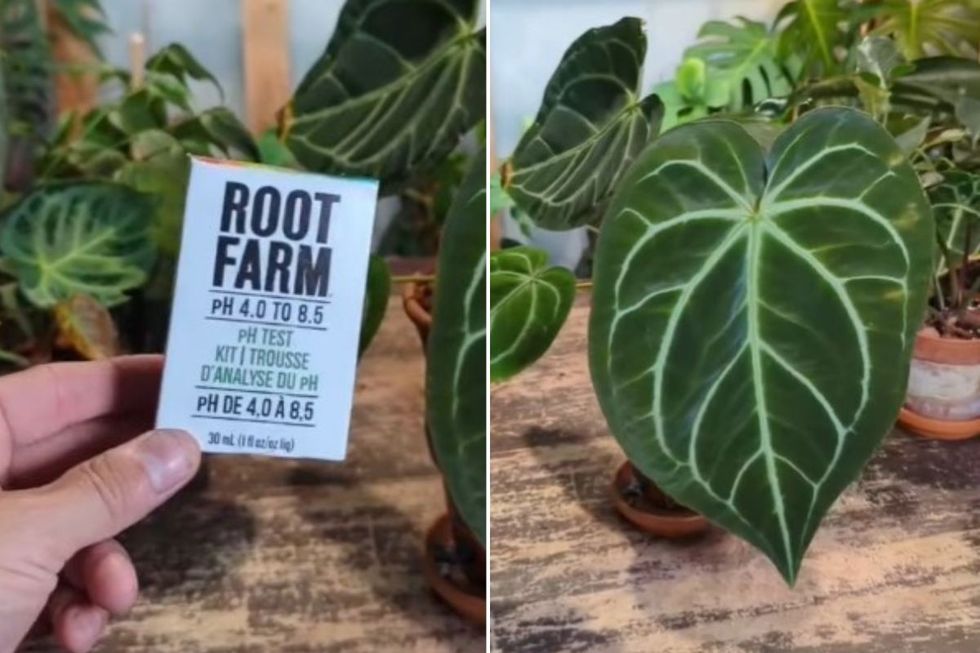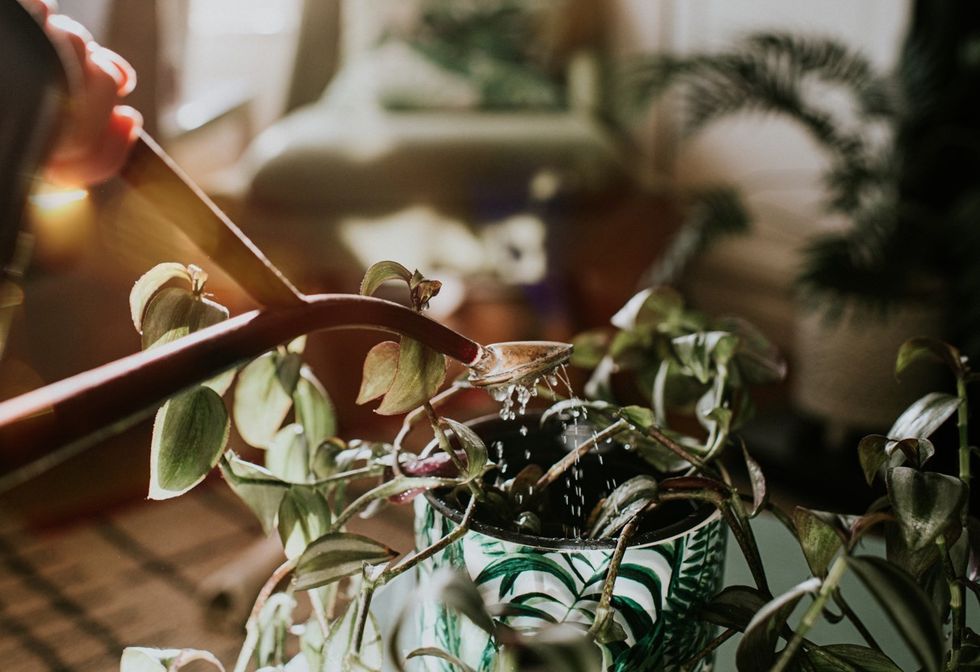The pH level of tap water is generally high due to the presence of calcium
GETTY
Determining the watering needs of your plant can significantly impact their success
Don't Miss
Most Read
Trending on GB News
Just like outdoor plants require the right soil conditions, the pH level of water used for houseplants is crucial for their health and growth.
An expert recently took to social media to demonstrate just how significantly the correct pH can impact a plant’s success by showing off his Anthurium Magnificum.
Houseplant aficionado @Everythingplants, who regularly shares his pearls of wisdom on TikTok, claimed he noticed drastic growth after tuning into the plant's pH needs.
Understanding the pH needs of your plant and adjusting the levels in the water you feed them accordingly is the key to big leaves, he explained.

The pH level of tap water is generally high due to the presence of calcium
@Everythingplants
“After watching a video on the importance of having the correct pH or watering with the correct pH, this is the result of mine,” he said, pointing at the largest leaf on the plant.
“I still can’t believe how much it’s sized up, it’s almost a perfect leaf, it just has a couple of blemishes, here at the top.”
According to the National Institute of Health, pH significantly affects nutrient uptake, flower quality and other cellular processes.
The pH levels indicate the acidity or alkalinity of a solution.
“The pH value usually varies between zero and 14," according to CANNA Australia.
"A solution with a pH value between zero and seven is acid and one between seven to 14 is alkaline.
“Vinegar and cola have a pH value of less than three. Soda and soap have a pH value higher than eight.
"A pH value of seven is considered neutral. Pure water at room temperature has a pH of 7."
LATEST DEVELOPMENTS

Water plants is important
GETTY
The pH of tap water, which many people feed their plants, is generally a little higher due to the presence of calcium.
How to test the pH of soil for houseplants?
Testing the pH of soil for houseplants is simple; all gardeners need is a readily available pH testing kit to determine if their plant’s soil is acidic or alkaline.
This knowledge allows for adjustment to create an ideal growing environment for different plants, ensuring they receive the nutrients they need to flourish.








